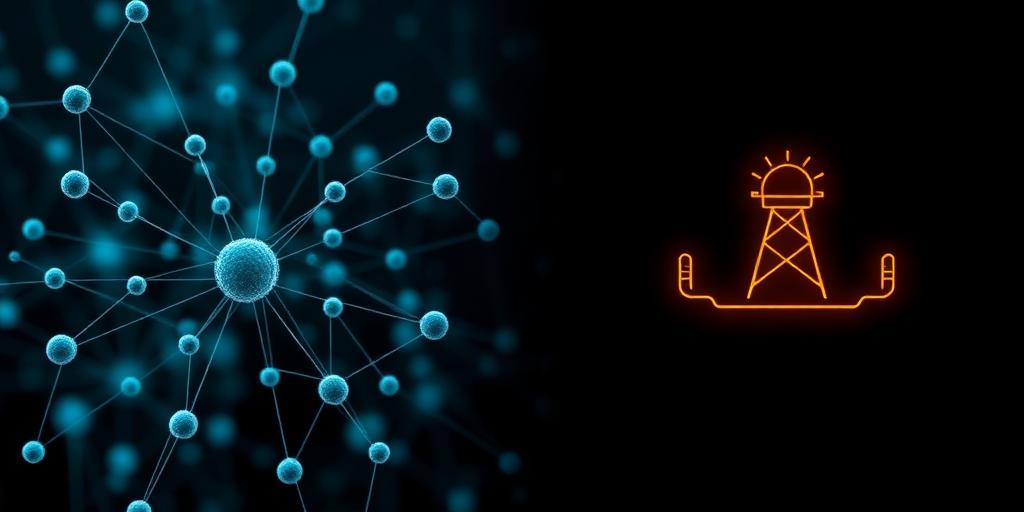How Decentralization Challenges Government and Corporate Power
Decentralization, the transfer of control from a central authority to distributed networks, is emerging as a transformative force in today's world. This paradigm shift challenges the conventional power structures of both government and corporations, offering new opportunities for individuals and communities. This post explores the core concepts of decentralization and its implications for governance and corporate operations.
Understanding Decentralization
Decentralization involves distributing power and decision-making away from a central entity. In technology, this is often seen with blockchain and distributed ledger technologies (DLTs), which allow data to be stored across a network rather than on a single server. This distribution enhances transparency, security, and resilience.
Impact on Government
- Enhanced Transparency and Accountability: Decentralized systems can provide greater transparency in government operations. Blockchain, for example, can be used to create tamper-proof records of transactions, making it more difficult for corruption to occur. This transparency can lead to increased accountability and trust in government institutions.
- Citizen Empowerment: Decentralization can empower citizens by giving them more direct control over decisions that affect their lives. Through decentralized autonomous organizations (DAOs), citizens can participate in governance processes, propose initiatives, and vote on policy changes. This participatory governance can lead to more responsive and democratic systems.
- Resilience Against Censorship and Control: Decentralized networks are inherently more resistant to censorship and control. Because there is no central point of failure, it is difficult for governments to shut down or manipulate these networks. This resilience is particularly valuable in countries with authoritarian regimes.
- Challenges to Sovereignty: Decentralization also poses challenges to traditional notions of sovereignty. When data and services are distributed across borders, it becomes more difficult for governments to regulate and control them. This can lead to conflicts over jurisdiction and regulatory authority.
Impact on Corporate Power
- Disintermediation of Services: Decentralization can disintermediate traditional corporate services by enabling peer-to-peer transactions and interactions. For example, decentralized finance (DeFi) platforms allow individuals to borrow, lend, and trade assets without intermediaries like banks. This disintermediation can reduce costs and increase access to financial services.
- New Business Models: Decentralization fosters the creation of new business models that are more democratic and community-driven. Platforms like blockchain-based marketplaces and social networks can empower creators and users by giving them more control over their data and content. This can lead to fairer and more equitable economic systems.
- Increased Competition: By lowering barriers to entry, decentralization can increase competition in various industries. Small startups and independent developers can build on decentralized platforms and compete with established corporations. This competition can drive innovation and improve the quality of products and services.
- Cybersecurity: Decentralized systems enhance cybersecurity by distributing data across multiple nodes, reducing the risk of a single point of failure. This distributed architecture makes it more difficult for hackers to compromise the entire system, thereby protecting sensitive information and ensuring operational continuity.
Examples of Decentralization in Action
- Blockchain in Supply Chain Management: Companies are using blockchain to track products throughout the supply chain, ensuring transparency and authenticity. This can help combat counterfeiting and improve consumer trust.
- Decentralized Social Media: Platforms like Mastodon and Peepeth offer alternatives to centralized social media networks. These platforms give users more control over their data and content, reducing the risk of censorship and manipulation.
- DAOs in Governance: DAOs are being used to manage everything from investment funds to online communities. These organizations allow members to collectively make decisions and allocate resources in a transparent and democratic manner.
The Future of Decentralization
As decentralization continues to evolve, it has the potential to reshape the balance of power between governments, corporations, and individuals. While it offers many benefits, it also poses challenges that need to be addressed thoughtfully. Finding the right balance between innovation and regulation will be crucial to harnessing the full potential of decentralization while mitigating its risks. The journey toward decentralization is a complex and ongoing process, but its transformative potential is undeniable.
Conclusion
Decentralization is not just a technological trend; it is a fundamental shift in how we organize and govern ourselves. By distributing power and decision-making, it challenges the traditional authority of governments and corporations, creating new opportunities for individuals and communities. Embracing decentralization requires a willingness to experiment, collaborate, and adapt to new ways of working. As we move forward, it will be essential to foster open dialogue and develop thoughtful policies that support the responsible and equitable implementation of decentralized technologies.









